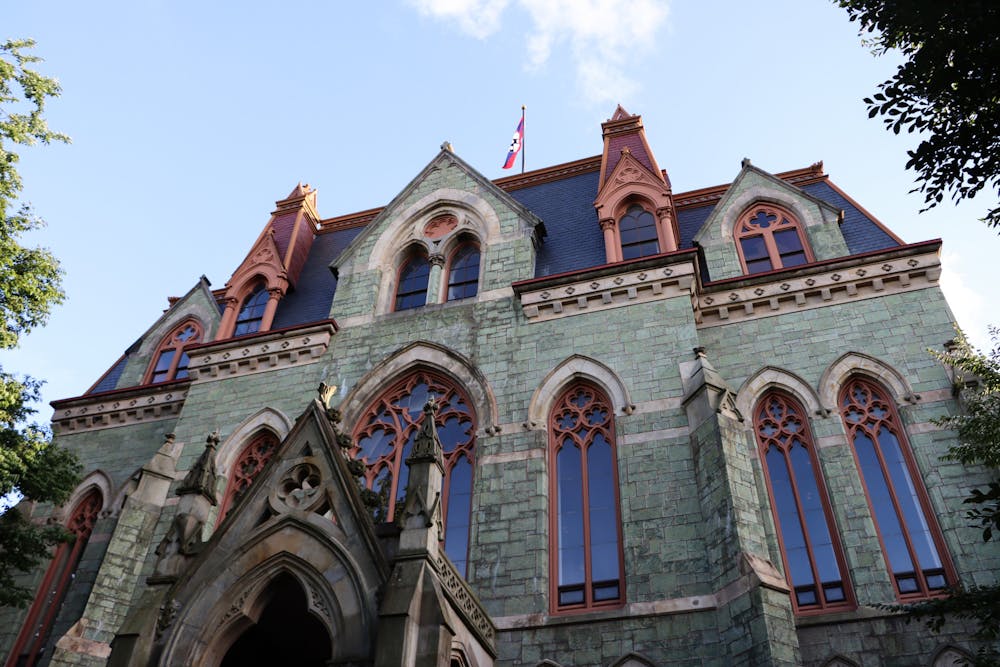
Dear President Magill, Provost Jackson, and Dean Fluharty,
As professors of literature and the humanities and as educators across the disciplines, it is with deep concern that we read your statement on the Palestine Writes Literature Festival.
The statement says that “While the Festival will feature more than 100 speakers, many have raised deep concerns about several speakers who have a documented and troubling history of engaging in antisemitism by speaking and acting in ways that denigrate Jewish people. We unequivocally — and emphatically — condemn antisemitism as antithetical to our institutional values.”
However, as you are well aware, in recent years, many critics of Israeli occupation, and the oppression of Palestinian people and Arabs within Israel by the Israeli state, have been branded as antisemitic by Zionist organizations and individuals. Your statement gives the impression that the entire festival could be seen as hosting views that you see as “incompatible with our institutional values.”
We appreciate the fact that you write that “As a university, we also fiercely support the free exchange of ideas as central to our educational mission. This includes the expression of views that are controversial and even those that are incompatible with our institutional values.” It is equally important for us as educators to declare our support for Palestinian artists and writers, making it clear that we condemn antisemitism as well as Islamophobia and the oppression of Palestinians. Given the rise of hate speech and hate crimes against Muslims, Jews, and other vulnerable minority groups, the statement as it stands would make Palestinian students and their allies on this campus feel that they do not have the support of the University. The University needs to recognize that there is a great deal of bigotry on the part of those who are hostile to Palestinian rights. Instead of valuing some lives over others, the University should make a clear distinction between the affirmation of Palestinian rights, culture, and literature, and the practice of antisemitism.
We ask that as leaders of the Penn community, you immediately amend your statement so that it is clearly in support of a diversity of views and diversity of religious, racial, and cultural communities on campus.
Literature teaches us to engage in critical thought, it teaches us empathy, and it also teaches us that complex issues cannot be reduced to simple wars of position. Palestinian literature, like any other, is deeply intertwined with the dreams and aspirations of the Palestinian people; it also expresses their agony and resistance to occupation. We ought to respect that, and welcome a discussion of Palestinian literature, just as we would a festival exploring literature from any other part of the world or any other group of people. Let us celebrate our diversity and also the work of literature and the humanities.
The Palestine Writes Literature Festival should not be singled out for censure. Neither should it be denied the diversity of viewpoints that comprise the Palestinian condition.
Signed,
- Ania Loomba, English, Comparative Literature, GSWS
- Chi-ming Yang, English and Comparative Literature
- Joe Lowry, Near Eastern Languages and Civilizations, Comparative Literature
- Jamal J. Elias, Religious Studies
- Harun Küçük, Middle East Center, History and Sociology of Science
- Simon Richter, Germanic Studies and Comparative Literature
- Margo Crawford, English, Comparative Literature, and Africana Studies
- Holly Pittman, History of Art
- Paul Cobb, Near Eastern Languages and Civilizations
- Herman Beavers, English, Africana Studies, Comparative Literature
- Eve Troutt Powell, History
- Karen Redrobe, Cinema and Media Studies
- Kevin Platt, Russian and East European Studies, Comparative Literature
- Dagmawi Woubshet, English
- Anne Norton, Political Science and Comparative Literature
- Melissa Sanchez, English, GSWS, Comparative Literature
- Ericka Beckman, Spanish and Portuguese, Comparative Literature
- Suvir Kaul, English and Comparative Literature
- Teemu Ruskola, East Asian Languages, Law
- Jed Esty, English and Comparative Literature
- Carol Muller, Music
- David Eng, English, Comparative Literature, Asian American Studies
- Sonal Khullar, History of Art, Comparative Literature
- Heather Love, English, GSWS
- Feride Hatiboglu, Near Eastern Languages and Civilizations
- Rita Barnard, English, Comparative Literature
- Bob Vitalis, Political Science
- Fatemeh Shams, Near Eastern Languages and Civilizations
- David Kazanjian, English, Comparative Literature, Latin American & Latinx Studies
- Roger Allen, Emeritus, Near Eastern Languages and Civilizations
- Jo Park, English and Asian American Studies
- Fariha Khan, Asian American Studies
- Max Cavitch, English and Comparative Literature
- Andrea Goulet, French and Francophone Studies.
- Jennifer Ponce de Leon, English, Comparative Literature, Latin American & Latinx Studies
- Rahul Mukherjee, English, Cinema and Media Studies
The Daily Pennsylvanian is an independent, student-run newspaper. Please consider making a donation to support the coverage that shapes the University. Your generosity ensures a future of strong journalism at Penn.
Donate



